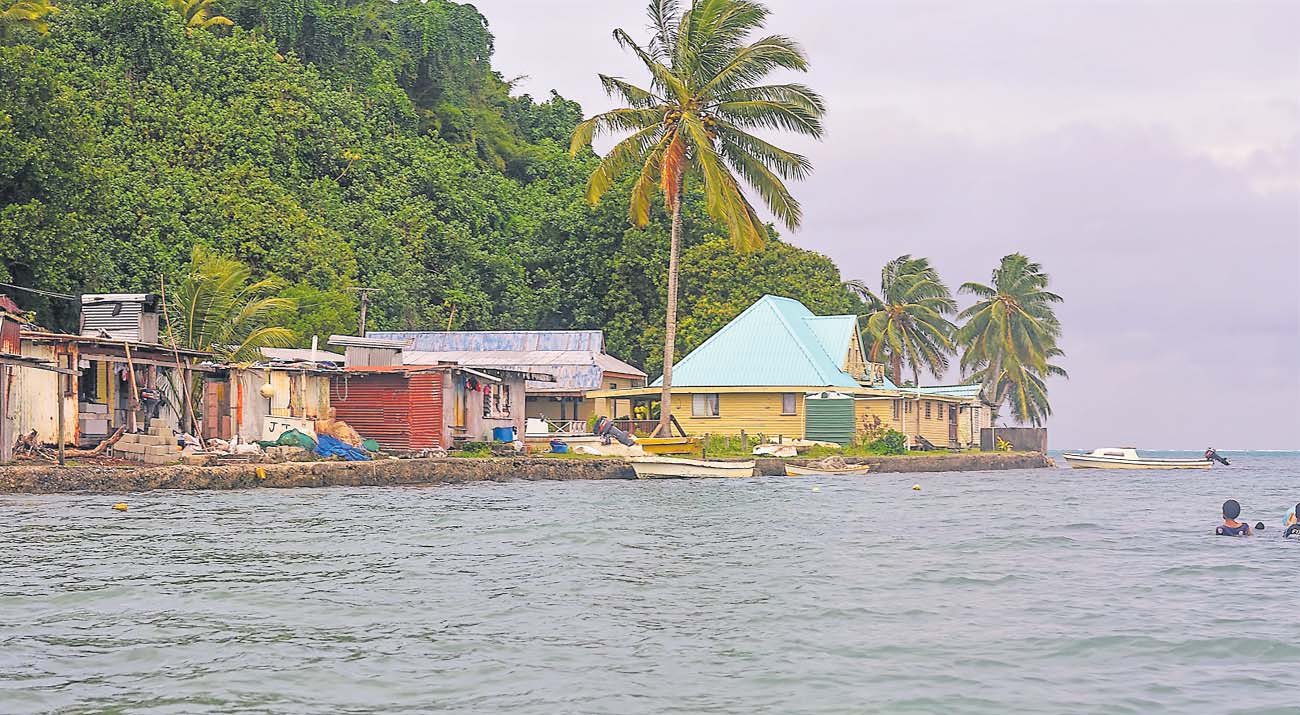Most climate change topics of discussions range from the rising sea level, unexpected storms and weather conditions to scarce resources, but what is not commonly talked about is how climate change can lead to the loss of traditional practices, ways of living and loss of identity.
And this is what the elders of Serua Island fear, should they choose to relocate.
The island, like many others here in Fiji and across the Pacific affected by climate change, is fighting to be saved.
With a population of 143, Serua Island is at the forefront of the fight against rising sea level and soil erosion issues that have surfaced due to king tides and unexpected storms.
Though the relocation of villagers to the nearby Talenaua Settlement has already taken place, 70-year-old Naifuluone Boseiwaqa is adamant that relocation is not on his to-do list. “Climate change or natural disasters, I will not relocate,” Mr Boseiwaqa insists.
“I share the same sentiments as the other elders in the village because we were all born and raised on this island, and relocating is not an option.
“Because we are tied to our island, we fear that leaving it would lead to the loss of our identity. It may be easy to talk about, but it’s harder to follow suit.
“The younger generations have started relocating, and this is not only because of climate change, it’s also easier for the children to go to school and working parents to go to work.”
A seawall and jetty that once stood proudly was now mistaken as a pile of rocks. “Our seawall was built in 2000 and now we can’t rely on it to safeguard our coastal area,” Mr Boseiwaqa says.
“Seawater easily reach our land and houses now through the cracks in whatever seawall we have left.”
Mr Boseiwaqa says they have reached out to relevant stakeholders to assist with the rebuilding of the island’s seawall.
“Many groups have come to the island to talk about climate change, but many times they would just teach instead of giving us actual help.
“So far, the only assistance we’ve received has been in the form of rocks brought in from the mainland. And we used them to stop seawater seeping into our homes.”
Mr Boseiwaqa adds there’s a possibility of their chiefly burial ground being submerged if climate change is not addressed and acted on with urgency.
“Soil erosion is at its peak here on the island and this is evident on the hill where we’ve buried our ancestors and those from the chiefly family.
“We didn’t have this several years ago, and it’s sad to see that the seawater now reaches the top of the hill.”
The rise in sea level and soil erosion are two of several issues the people of Serua face. However, with the decrease in fish stocks and the destruction of water pipes due to rough waves, the villagers have learnt to adapt.
“We would just fish around the island back in the day but now that hardly happens,” Mr Boseiwaqa says.
“The fishermen now need to go right out to sea if they wish to land a good catch.
“Our pipes that run from the mainland to the island have often been destroyed by rough waves during storms and even high tides.
Time and time again we would repair these pipes, but we’re lucky that a few houses have water tanks to assist us.”
With the mangrove potting and planting that had once been conducted on the island, Mr Boseiwaqa says it’s hard to tell whether the mangroves really help in addressing the climate change crisis facing the island.
“Mangroves will be planted on both sides of the island where the waves come through the strongest, so it will be interesting to see how things develop over the next few years.
“I will not relocate, but I am thankful that we have a place for the children and grandchildren of the island to stay on the mainland.



